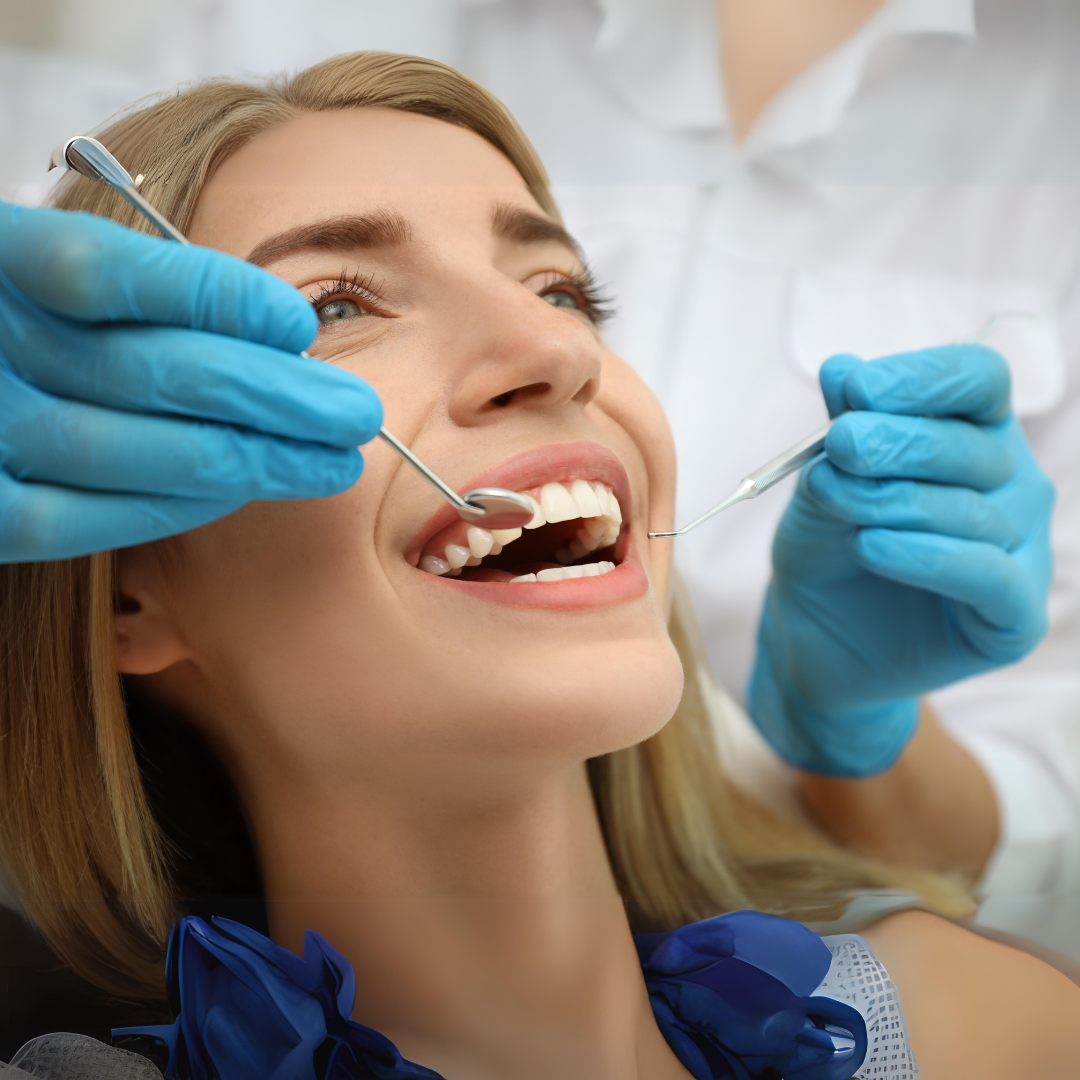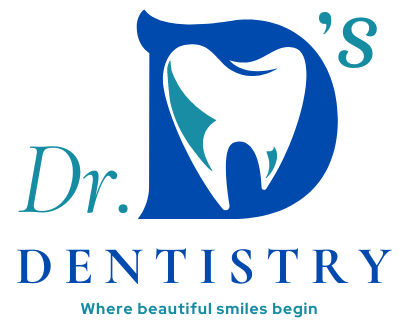Pregnancy and Dental Care is a time of great excitement and anticipation, but it also requires extra attention to your health, including your oral health. Many expecting mothers may not realize that dental care is an important part of a healthy pregnancy and Dental Care. The hormonal changes that come with pregnancy can affect your teeth and gums, making you more susceptible to certain dental issues. In this guide, we’ll highlight the key aspects of dental care that pregnant women should not ignore to ensure a healthy smile and a healthy baby.
Why Dental Care Is Important During Pregnancy and Dental Care
Maintaining good oral health during pregnancy is essential for both your well-being and your baby’s development. Changes in hormone levels can lead to increased sensitivity to plaque, which may result in gum disease and other dental problems. In fact, research has shown that poor oral health during pregnancy may be linked to pregnancy complications such as preterm birth and low birth weight.
Good oral care helps reduce the risk of infections, gum disease, and cavities, ensuring that you and your baby remain healthy throughout your pregnancy and Dental Care.
Common Dental Issues Expecting Moms Face
During pregnancy, your body undergoes many changes, some of which can impact your dental health. Here are some of the most common dental issues you might face:
1. Pregnancy Gingivitis
What it is:
Pregnancy gingivitis is a common condition caused by hormonal changes that make your gums more sensitive to plaque. This can lead to red, swollen, and bleeding gums. If left untreated, gingivitis can progress into more severe gum disease, known as periodontitis.
Why it matters:
Gum disease has been linked to complications such as preterm labor and low birth weight. It’s important to address any signs of gum disease early on.
What to do:
- Brush and floss regularly to remove plaque and bacteria from your teeth and gums.
- Use a soft-bristled toothbrush to avoid irritating sensitive gums.
- Schedule regular dental cleanings to keep gingivitis under control.
2. Tooth Decay and Cavities
What it is:
Pregnancy and Dental Care cravings for sugary foods, combined with morning sickness and changes in your eating habits, can increase your risk of cavities. Vomiting due to morning sickness exposes your teeth to stomach acids, which can erode enamel and make your teeth more vulnerable to decay.
Why it matters:
Untreated cavities can lead to infections that may affect your overall health and your pregnancy. Tooth decay can also cause discomfort and difficulty eating.
What to do:
- Brush after meals and snacks, especially after consuming sugary foods.
- Rinse your mouth with water or a baking soda solution after vomiting to neutralize stomach acids.
- Limit your intake of sugary and acidic foods, and choose healthy snacks like fruits, vegetables, and dairy products.
3. Pregnancy and Dental Care Tumors (Pyogenic Granulomas)
What it is:
Pregnancy and Dental Care tumors are non-cancerous growths that can appear on the gums during pregnancy. These growths are caused by increased plaque buildup and hormonal changes. While they can be alarming, pregnancy tumors are generally harmless and often go away after delivery.
Why it matters:
Though they aren’t harmful, pregnancy and Dental Care tumors can cause discomfort, bleeding, and may interfere with eating or brushing.
What to do:
- Keep up with your oral hygiene routine to prevent plaque buildup.
- If the tumor is causing discomfort, see your dentist, who may recommend removing it if necessary.
4. Enamel Erosion from Morning Sickness
What it is:
Frequent vomiting due to morning sickness can expose your teeth to stomach acids, which can erode enamel and make your teeth more susceptible to cavities and sensitivity.
Why it matters:
Eroded enamel can lead to tooth decay, sensitivity, and an increased risk of infections.
What to do:
- After vomiting, rinse your mouth with water or a mixture of water and baking soda (1 teaspoon of baking soda in a cup of water) to neutralize acid.
- Avoid brushing your teeth immediately after vomiting, as your enamel is temporarily softened by the acid. Wait at least 30 minutes before brushing.
- Talk to your dentist about fluoride treatments to help strengthen your enamel.
Pregnancy and Dental Care: What You Shouldn’t Ignore
Here are key aspects of dental care that pregnant women should not overlook:
1. Regular Dental Checkups
Visiting the dentist during pregnancy is not only safe but also highly recommended. Your dentist can monitor your oral health, address any issues early on, and provide cleanings to reduce plaque buildup. Most dental procedures, including routine cleanings, exams, and fillings, are safe during pregnancy, especially in the second trimester.
If you have any concerns about dental treatments, consult both your dentist and OB-GYN to ensure the best course of action for you and your baby.
2. Dental X-Rays
Many pregnant women worry about dental X-rays, but modern dental X-rays are considered safe during pregnancy. Dentists use protective shields, such as lead aprons, to minimize radiation exposure to you and your baby. If you need an X-ray for a dental emergency, it’s better to have the X-ray taken than to delay treatment.
3. Gum Health
As mentioned earlier, pregnancy gingivitis is common, so taking extra care of your gums is essential. Neglecting gum health can lead to periodontitis, a more serious form of gum disease that can affect your pregnancy. Keep up with your oral hygiene routine and make sure to schedule cleanings to manage any gum issues.
4. Nutrition for Oral Health
What you eat during pregnancy plays a role in maintaining your oral health. Foods rich in calcium, such as dairy products, leafy greens, and almonds, help strengthen your teeth. Vitamin D is also important for bone and tooth health, so include foods like eggs and fortified cereals in your diet. Limiting sugary and acidic foods can help prevent cavities and enamel erosion.
5. Managing Morning Sickness
If morning sickness is affecting your oral health, be proactive about protecting your teeth. Frequent vomiting can weaken enamel, so rinse your mouth with water or a baking soda solution after each episode. Avoid brushing immediately after vomiting, as this can cause further enamel damage. If nausea makes it difficult to brush, try using a bland toothpaste or brushing at times when your symptoms are less intense.
Safe Dental Treatments During Pregnancy and Dental Care
In addition to routine cleanings and exams, many dental treatments are safe during pregnancy. Here’s what you need to know about specific procedures:
- Fillings and Crowns: If you need to treat a cavity or restore a tooth, these procedures can be safely performed, particularly during the second trimester. Delaying treatment for dental decay can lead to more serious issues, such as infections.
- Root Canals: If you have an infected tooth, a root canal can be performed during pregnancy. Treating infections promptly is essential to avoid health complications.
- Whitening and Cosmetic Procedures: These procedures are generally not recommended during pregnancy, as they are elective and can be postponed until after delivery.
Tips for Maintaining Good Oral Health During Pregnancy and Dental Care
Here are some simple steps you can take to protect your oral health throughout pregnancy:
- Brush and Floss Daily: Continue to brush twice a day with fluoride toothpaste and floss daily to remove plaque and reduce your risk of gum disease and cavities.
- Rinse After Morning Sickness: If you experience morning sickness, rinse your mouth after vomiting to remove stomach acids and protect your enamel.
- Eat a Balanced Diet: Focus on calcium-rich foods and limit sugary snacks. A balanced diet will not only help your overall health but also contribute to strong teeth and gums.
- Stay Hydrated: Drinking plenty of water can help wash away food particles and bacteria and promote saliva production, which protects your teeth.
- Visit Your Dentist Regularly: Schedule regular check-ups with your dentist to monitor your oral health and catch any problems early.
Final Thoughts: Prioritize Your Oral Health During Pregnancy and Dental Care

Pregnancy is a busy time, but don’t neglect your dental health. By staying on top of your oral hygiene, eating a balanced diet, and visiting your dentist regularly, you can prevent common dental issues and keep your smile healthy. Prioritizing your oral health is not only important for your well-being, but it also helps ensure a healthy pregnancy and a healthy baby.
Conclusion: Oral Health is Key to a Healthy Pregnancy
Your oral health plays a crucial role in your overall well-being during pregnancy, and it should not be overlooked. By being proactive about your dental care, you can minimize the risks of common dental issues like pregnancy gingivitis, cavities, and enamel erosion. Regular dental checkups, proper hygiene practices, and a balanced diet can make a significant difference in protecting both your teeth and gums.
Additionally, don’t hesitate to talk to your dentist about any concerns you may have. Dental professionals are well-equipped to provide safe treatments throughout pregnancy, ensuring that you and your baby stay healthy.
Remember, taking care of your oral health is part of taking care of your baby. A healthy smile not only boosts your confidence but also supports your body as it undergoes significant changes during pregnancy. So, keep up with your dental care routine, visit your dentist regularly, and enjoy this special time knowing that you’re doing everything to ensure a healthy pregnancy.


